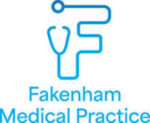This practice is supporting vital coronavirus (COVID-19) planning and research by sharing your data with NHS Digital.
The health and social care system is facing significant pressures due to the coronavirus (COVID-19) outbreak. Health and care information is essential to deliver care to individuals, to support health, social care and other public services and to protect public health. Information will also be vital in researching, monitoring, tracking and managing the coronavirus outbreak. In the current emergency it has become even more important to share health and care information across relevant organisations. This practice is supporting vital coronavirus planning and research by sharing your data with NHS Digital, the national safe haven for health and social care data in England.
Our legal basis for sharing data with NHS Digital
NHS Digital has been legally directed to collect and analyse patient data from all GP practices in England to support the coronavirus response for the duration of the outbreak. NHS Digital will become the controller under the General Data Protection Regulation 2016 (GDPR) of the personal data collected and analysed jointly with the Secretary of State for Health and Social Care, who has directed NHS Digital to collect and analyse this data under the COVID-19 Public Health Directions 2020 (COVID-19 Direction).
All GP practices in England are legally required to share data with NHS Digital for this purpose under the Health and Social Care Act 2012 (2012 Act). More information about this requirement is contained in the data provision notice issued by NHS Digital to GP practices.
Under GDPR our legal basis for sharing this personal data with NHS Digital is Article 6(1)(c) – legal obligation. Our legal basis for sharing personal data relating to health, is Article 9(2)(g) – substantial public interest, for the purposes of NHS Digital exercising its statutory functions under the COVID-19 Direction.
The type of personal data we are sharing with NHS Digital
The data being shared with NHS Digital will include information about patients who are currently registered with a GP practice or who have a date of death on or after 1 November 2019 whose record contains coded information relevant to coronavirus planning and research. The data contains NHS Number, postcode, address, surname, forename, sex, ethnicity, date of birth and date of death for those patients. It will also include coded health data which is held in your GP record such as details of:
- diagnoses and findings
- medications and other prescribed items
- investigations, tests and results
- treatments and outcomes
- vaccinations and immunisations
How NHS Digital will use and share your data
NHS Digital will analyse the data they collect and securely and lawfully share data with other appropriate organisations, including health and care organisations, bodies engaged in disease surveillance and research organisations for coronavirus response purposes only. These purposes include protecting public health, planning and providing health, social care and public services, identifying coronavirus trends and risks to public health, monitoring and managing the outbreak and carrying out of vital coronavirus research and clinical trials. The British Medical Association, the Royal College of General Practitioners and the National Data Guardian are all supportive of this initiative.
NHS Digital has various legal powers to share data for purposes relating to the coronavirus response. It is also required to share data in certain circumstances set out in the COVID-19 Direction and to share confidential patient information to support the response under a legal notice issued to it by the Secretary of State under the Health Service (Control of Patient Information) Regulations 2002 (COPI Regulations).
Legal notices under the COPI Regulations have also been issued to other health and social care organisations requiring those organisations to process and share confidential patient information to respond to the coronavirus outbreak. Any information used or shared during the outbreak under these legal notices or the COPI Regulations will be limited to the period of the outbreak unless there is another legal basis for organisations to continue to use the information.
Data which is shared by NHS Digital will be subject to robust rules relating to privacy, security and confidentiality and only the minimum amount of data necessary to achieve the coronavirus purpose will be shared. Organisations using your data will also need to have a clear legal basis to do so and will enter into a data sharing agreement with NHS Digital. Information about the data that NHS Digital shares, including who with and for what purpose will be published in the NHS Digital data release register .
For more information about how NHS Digital will use your data please see the NHS Digital Transparency Notice for GP Data for Pandemic Planning and Research (COVID-19).
National Data Opt-Out
The application of the National Data Opt-Out to information shared by NHS Digital will be considered on a case by case basis and may or may not apply depending on the specific purposes for which the data is to be used. This is because during this period of emergency, the National Data Opt-Out will not generally apply where data is used to support the coronavirus outbreak, due to the public interest and legal requirements to share information.
Your rights over your personal data
To read more about the health and care information NHS Digital collects, its legal basis for collecting this information and what choices and rights you have in relation to the processing by NHS Digital of your personal data, see:
